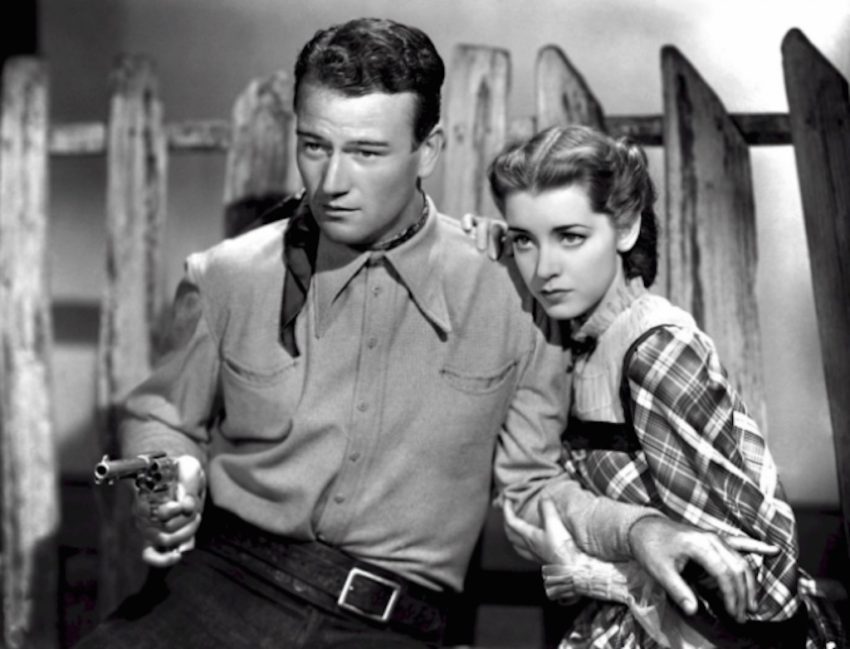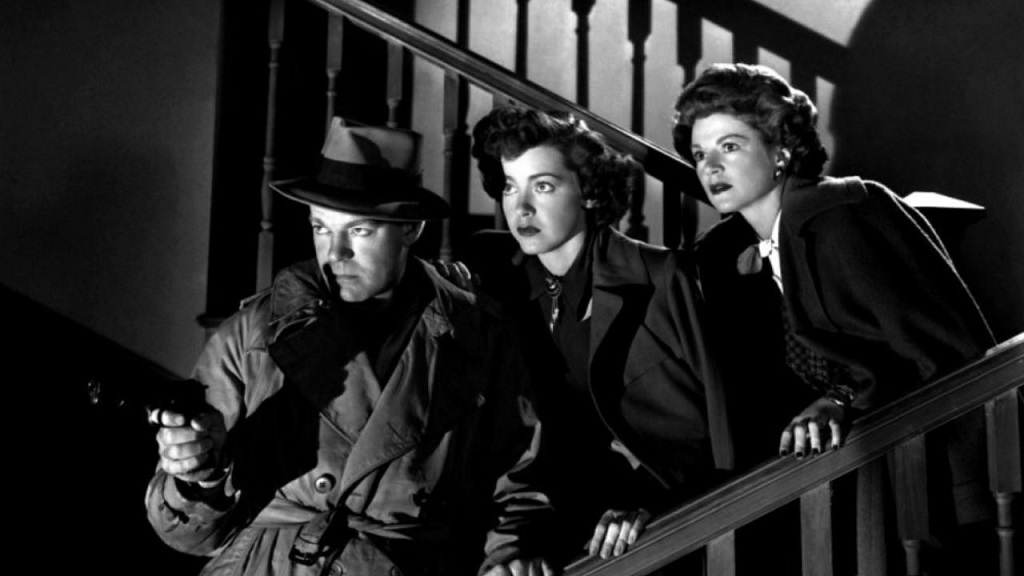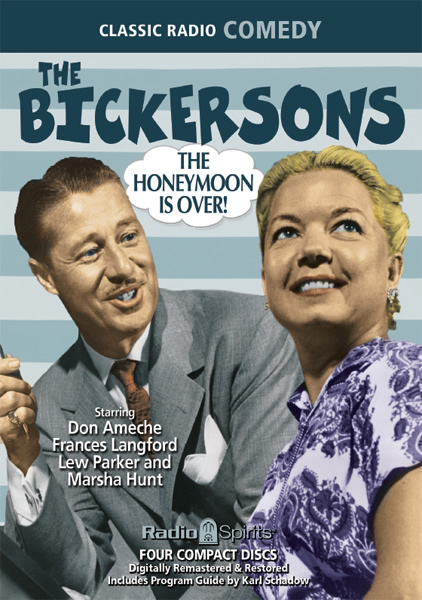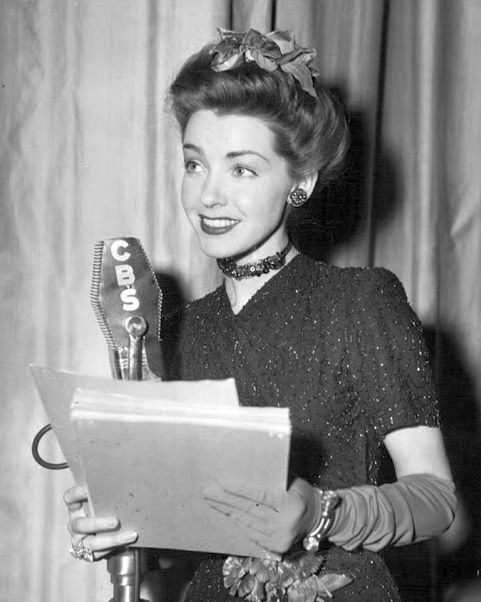Happy Birthday, Marsha Hunt!
Posted by Ivan G. Shreve, Jr. on Oct 17th 2019
Actress Marsha Hunt reminisced to writer-director-producer Roger C. Memos in 2014 that her mother Minabel took her to see a Joan Crawford film, No More Ladies (1935), when she was just a teenager. Crawford’s character in the movie was named “Marcia,” and at one point during the feature Mother Hunt leaned over and whispered to her daughter: “That’s your name.”
This came as quite a surprise to the woman who was born Marcia Virginia Hunt on this date in the Windy City in 1917…and as of this writing, celebrates her 102nd birthday today. You see, young Marsha had always gone by “Betty”—the reason being that a member of her family convinced Mother Minabel it wasn’t a good idea to name her new daughter “Marcia,” seeing as how there was already a “Marjorie” in the Hunt family (Marsha’s sister) and siblings shouldn’t have similar names. From the moment she learned this, Hunt decided she would go with her proper name…but that it would be spelled “Marsha” after some of her schoolmates argued that “Marcia” might be mistakenly pronounced Mar-see-uh.
Marsha Hunt’s father was a lawyer by profession, and later worked as a Social Security Administrator, while Mirabel was a voice coach and organist. That could explain Marsha’s interest in acting, which took full bloom after the family moved to NYC when she was young. She began to perform in school plays and at church functions. Hunt graduated from the Horace Mann High School for Girls at age 16, and though her parents encouraged her to go to college, Marsha had difficulty finding one “where you could major in drama before your third year.” Instead, Hunt opted to take acting lessons at the Theodora Irvine Studio (one of her fellow students was Cornel Wilde) and found employment as a model with the John Powers Agency.

Marsha Hunt had planned to study acting at the prestigious Royal Academy of Dramatic Art in the UK…but an interesting development sidetracked that career path. She was offered, at age 17, a seven-year motion picture contract with Paramount while vacationing in Los Angeles to visit an uncle. Hunt was uncertain about a movie career, but she made her movie debut with 1935’s The Virginia Judge. From that moment on, she made motion pictures as the ingénue — anything from programmers to B-Westerns (with an occasional loan-out to 20th Century-Fox or R-K-O). Among the interesting items on Marsha’s Paramount resume: Hollywood Boulevard (1936), an engaging little B featuring many star cameos and performances from silent movie legends; College Holiday (1936), a musical comedy with Jack Benny and his friends George Burns & Gracie Allen; and Born to the West (1937; a.k.a. Hell Town), where her leading men were Johnny Mack Brown and John Wayne (before he became John Wayne). (If you’ve ever watched the classic screwball comedy Easy Living [1937], you may recognize Hunt as the girl who figures in the movie’s closing gag.)
Paramount dispensed with Marsha Hunt’s services in 1938, and for a few years after that she did a little freelancing. At M-G-M she appeared in such films as The Hardys Ride High (1939), These Glamour Girls (1939)…and a critically-acclaimed showcase as one of Greer Garson’s sisters in Pride and Prejudice (1940). MGM signed her officially in 1941, and Hunt would go on to provide sibling support in another Garson film, Blossoms in the Dust (1941). Before the studio allowed her contract to lapse in 1945, Marsha racked up film appearances in the likes of Kid Glove Killer (1942), The Affairs of Martha (1942), The Human Comedy (1943), Cry “Havoc” (1943), and The Valley of Decision (1945). (Marsha is also quite excellent in None Shall Escape [1944]—though she made that one while on loan to Columbia.)
Marsha Hunt’s film work resulted in many appearances on radio, guesting on such anthology programs as The Cavalcade of America, The Ford Theatre, The Gulf/Lady Esther Screen Guild Theatre, The Lux Radio Theatre, The MGM Theatre of the Air, The Silver Theatre, Suspense, The Orson Welles Theatre, and The Unexpected. Hunt also made time for showcases on Mail Call and The Smiths of Hollywood. Her most high-profile radio gig was replacing Frances Langford as Don Ameche’s sparring partner in the “Bickersons” sketches that were a prominent feature on The Edgar Bergen-Charlie McCarthy Show in the 1948-49 season. This didn’t last long, unfortunately; Bergen voluntarily took his show off the air in December of 1948, waiting for the phenomenon known as Stop the Music to burn itself out. (Eventually it did, and Edgar and his dummies returned to radio in the fall of 1949…sans John and Blanche.)

Despite first-rate showcases in films like Smash-Up: The Story of a Woman (1947) and Raw Deal (1948; one of her best remembered pictures), Marsha Hunt would soon fall victim to the insidious Hollywood blacklist in the late 1940s/early 1950s. She was one of the many Hollywood stars who were members of the Committee for the First Amendment (truth be told, she’s the last surviving member as of this post). Her participation in a 1947 radio program entitled Hollywood Fights Back didn’t do her any favors…nor did flying to Washington, DC with celebs like Humphrey Bogart and Lauren Bacall to support writers and directors [“The Hollywood Ten”] who had been called before the House Un-American Activities Committee.
Marsha Hunt was also listed in the notorious publication Red Channels — primarily because she signed more than a few petitions back in the day, but also because of her refusal to recant her participation in the Committee for the First Amendment. Her spouse Robert Presnell, Jr. (her second husband) was also blacklisted, though neither Marsha nor Robert were ever called on to testify before HUAC. Hunt’s work on the silver screen began to dry up, though she did appear in a few movies (like Actors and Sin and The Happy Time, both 1952). She compensated for the steep decline in film work by doing a lot of early live television (The Philco Television Theatre, Studio One) and stage work, where the blacklist never quite took hold. Marsha had made a rather impressive Broadway debut in 1948’s Joy to the World, and she followed that with productions of The Devil’s Disciple, Borned in Texas, and Legend of Sarah.
The late 1950s would find Marsha Hunt still performing on stage in plays like The Tunnel of Love. While she eventually outlasted the blacklist, she entered in a state of semi-retirement in the 1960s. There would be appearances on TV favorites like Gunsmoke, The Outer Limits, and The Twilight Zone, but Hunt was also committed to spending her time helping others. She supported civil rights causes and efforts like UNICEF and The March of Dimes, with a special emphasis on getting involved with the United Nations. Throughout the 1970s and 1980s she worked on TV (Murder, She Wrote, Matlock), and even in the 2000s graced the occasional film (like Chloe’s Prayer [2006]). She was the subject of a highly recommended documentary released in 2015, Marsha Hunt’s Sweet Adversity.

A recent article in the Biddeford, Maine newspaper The Journal Tribune, written by Alabama-based writer Nick Thomas, notes the upcoming natal anniversary of our birthday girl. Thomas suggests that those people named “Marsha” (possibly inspired by Hunt’s show business career) get in touch with their namesake…because she would love to hear from fans. Here at Radio Spirits, we recommend that you check out The Honeymoon is Over!, our popular Bickersons collection that features Marsha along with Don Ameche, Frances Langford, and Lew Parker. Happy birthday, Marsha!

